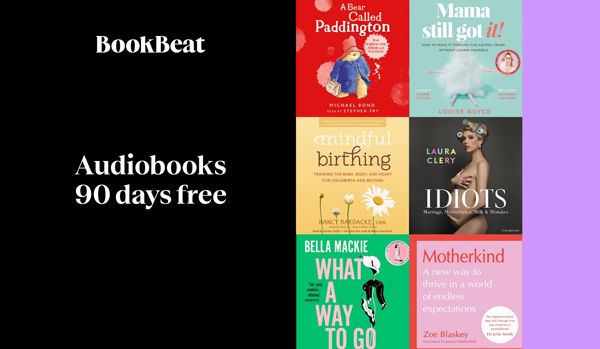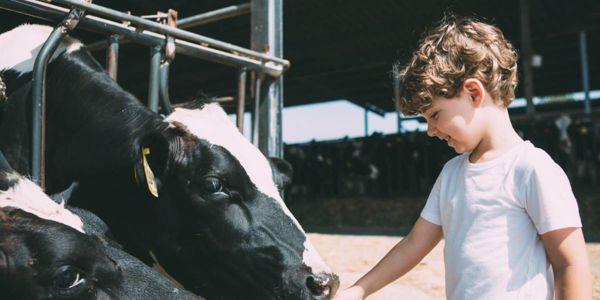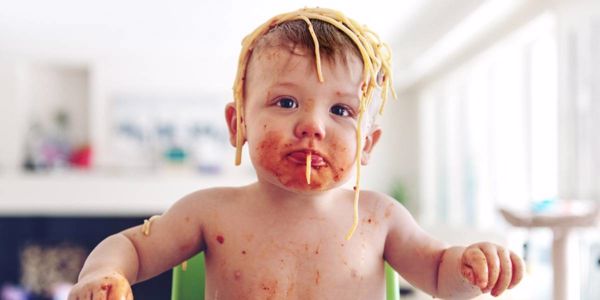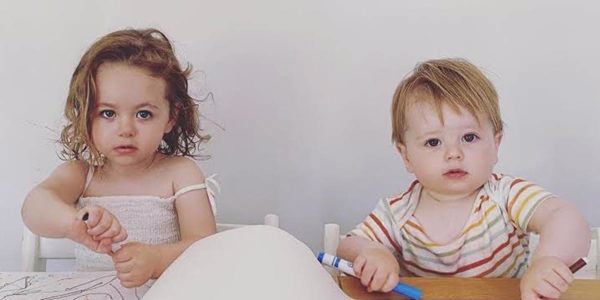If you’re an avid internet user, you’ve probably heard of #pizzagate and the Wayfair Child Trafficking conspiracy theories over the last year or so. These sort of conspiracy theories tend to stem from the far-right conspiracy theory QAnon, which picked up momentum during the COVID-19 lockdown and basically decrees that Donald Trump is soon going to take down an elite, celebrity-filled, Satan-worshipping paedophile ring. Yes, people really do believe this! But when people ask me why I don’t show my son’s face online, and I respond with a short and sweet answer – normally something along the lines of ‘safeguarding’, or, ‘privacy’ – it’s often met with confusion or the ideology that I’ve fallen prey to silly conspiracy theories, or I’m being overdramatic or paranoid. So, let’s dive into the real reasons why I don’t show my son’s face online!
Consent
Let’s start with an easy one – my 18-month-old toddler did not choose to have his photo taken. Nor did he say ‘ooh that one looks good mum, let’s stick that on Insta!’. It was my decision to put myself and my life on a public platform for the world to see. I choose the career of a blogger. I chose to open an Instagram account. My son, did not. He is unable to give consent for his likeness to be shared.
Privacy
Privacy is a really big thing for me. I like to think that despite being a blogger and sharing my life with the world, I know the line of what to keep private. I don’t talk about personal things, except for where it could educate or help others. I like to think that I share just enough to warrant being a blogger, without crossing the threshold into our private life.
I want Arthur to grow up knowing that his life is private, and that he has control over what he decides to share – no one else. I will never share the intimate details of his life, or his embarrassing secrets, or his mistakes. I think we sometimes forget that once we’ve shared something on the internet, it is out of our hands. A photo or piece of text, once shared online, is essentially immortal. Even if your account is private: can you truly vouch for every single one of those people on your friends list? After all, we never truly know people’s deepest, darkest fantasies.
There is every possibility that our children could discover what we are posting now when they are older. Whenever I post a photo or a caption, I always ask myself: ‘How would I feel at 16 years old, if my mum had posted this, and I were reading this about me? Would I want the whole world to see this photo?’.
What if someone else found some unsavoury information or an unflattering photo of your child on your social media account? Imagine your child being picked on in school – growing up we never had to face the possibility of another child bullying us because of what they’ve read or seen online from our parent’s social media accounts. I can already imagine it: a group of primary school students, jeering at each other, saying ‘So and so’s mum said she wet the bed last night!’, ‘So and so didn’t learn to walk until she was two, she’s stupid!’ or ‘Look at this photo of so and so in the bath as a baby, she’s so ugly, look at her [intimate body parts]’.
Some studies suggest that an average child will have over 1,000 photos of them on social media before they are five years old. That’s 1,000 photos out of your hands, out of your control. For anyone to view, save, copy, manipulate. Your private family life isn’t very private at all if you start to think about how many photos that truly is.
Identity Fraud
So, on top of all the photos someone might be able to find of your child, what about all the personal information you’ve given up? We all share our children’s names, dates of births, times of birth. Have you ever accidentally put up a photo showing your street name or house number? If we’re constantly vlogging sat in the car on our driveway, and someone knows roughly where you live, it wouldn’t take very long to figure out what driveway you were sitting at by using the background and information about the car you drive. I have no doubt that in the future, we will potentially be putting our children at risk of identity fraud – it’s something I am personally trying to be more aware of, and be more careful as to the finer details I am sharing. Could you fill out a credit card application with the information you’ve shared online about your child? If the answer is yes – you could have a problem there.
Paedophiles and safeguarding
I want to make it clear that when I talk about paedophiles and safeguarding, it’s not because of a silly conspiracy theory or me being overdramatic. Do I think someone in a paedophile ring is going to kidnap my child and sell them under the pretence of a piece of furniture on the internet? No, no I do not. Do I think there is a potential possibility that somebody could screenshot innocent images of children on Instagram and distribute these amongst paedophiles? Yes. Because it happens every single second of every single day. It’s happening right now.
There are dedicated Instagram pages and websites where paedophiles post photos taken from Instagram, in which other paedophiles then view and comment on. I’ve seen these accounts first hand – this is not a rumour, this is real. They search for hashtags like #littlegirls and #toddlerbathtime. Parents might think a photo is cute and innocent, because it is, but viewed through the eyes of a predator, that photo can be seen very differently. You also need to remember that photos can be manipulated – you need to think about the poses your children are in. It’s horrible, as a parent, to look at a photo of your child licking an ice cream and think anything other than ‘what a cute photo of my darling angel!’, but is putting that photo online for a few likes really worth the risk of it being manipulated for nefarious reasons?
If this is something you’re interested in reading about further, I would direct you to Instagram accounts such as @natalie.mafi, @maxiidressdnmilk and @zaraslittlefamily - these accounts are all real mums, who have either experienced these situations first hand or know somebody who has, who are speaking up about online safety with our children. They all have story highlights where you can learn more.
If you follow me, you’ll know that I do still post photos online of my son… but his face is never in it. The shots are always from behind, or above, or he’s looking away from the camera. I always, always, always think before posting a photo and never post anything that could at all be viewed in a nefarious way. This post is not meant to scaremonger, or shame parents who do choose to share photos of their children, but to answer the question of why I personally choose not to.
No matter what you do or don’t share: educate yourself, and stay safe.







